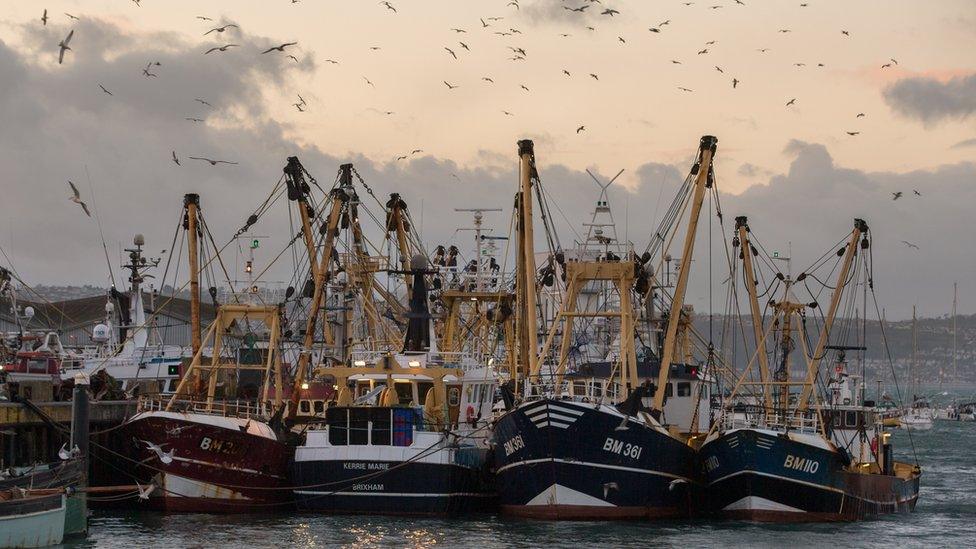Nineteen months of Brexit wrangling - and that's just a taster
- Published
Jean-Claude Juncker: "If the House [of Commons] would say no, we would have no deal"
There was a definite "battle of the tones" at the seal-the-deal Brexit summit with Theresa May.
EU leaders were determinedly sombre, while the UK prime minister had to sound upbeat and positive about her country's Brussels-free future.
It shouldn't be under-estimated. Sunday was a huge day for the EU, signing off on the divorce papers of a departing key member state for the first time in the history of the bloc.
In the eyes of many, Brexit counts as an EU failure. At the summit, French President Emmanuel Macron reminded the press of the fragility of European Union. Which is why, time and again, EU leaders in Brussels continue to make so much of the (unusual) show of unity the Brexit process has provoked in EU ranks.
For now, of course, all European eyes turn to the UK to see if the hard-negotiated Brexit deal passes through the House of Commons.
If it doesn't, the President of the European Commission, Jean-Claude Juncker, insists there will be no deal.
"This is the deal. This is THE deal," he told me emphatically, ruling out the possibility of renegotiating the Brexit texts.
If he's true to his word, and parliament votes down the divorce deal, then all 19 months of painful EU-UK negotiations were for naught. And both sides could find themselves staring at the cost and potential chaos of what the EU's chief Brexit negotiator Michel Barnier calls a non-orderly Brexit.
EU leaders are hell-bent on avoiding that.
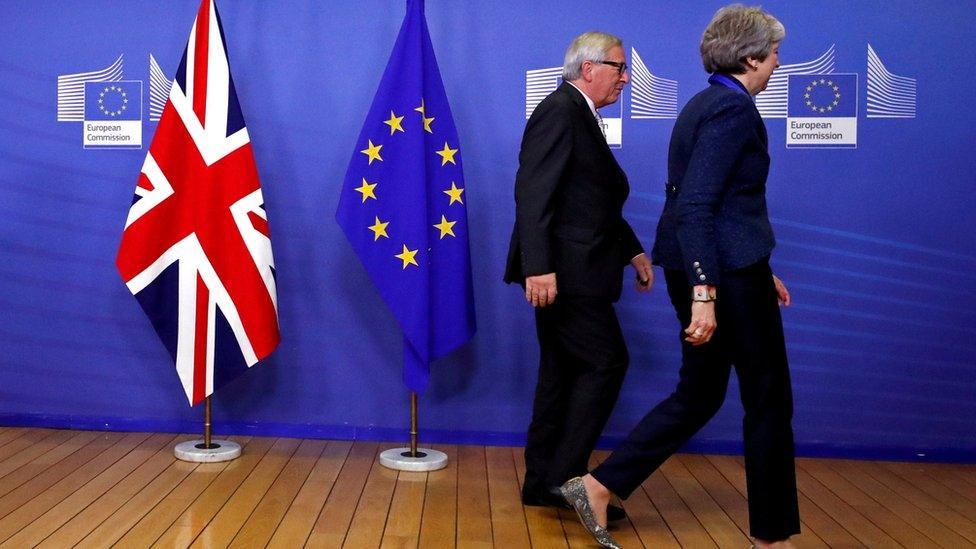
Jean-Claude Juncker told the BBC the Brexit deal reached with Theresa May was "THE deal"
So much so, that as much as EU leaders regret Brexit, and as often as they have spoken at every EU summit so far since the Brexit vote about the door still being open for the UK to change its mind, there was none of that talk on Sunday. Instead, they were fully on message with Theresa May - to help her sell her deal back home.
Dutch Prime Minister Mark Rutte remarked that Mrs May had "fought hard" and that the result was a good deal. Meanwhile, Mr Barnier said these had been "extraordinary", "complex" and "difficult" negotiations, resulting in an "unprecedented and ambitious partnership".
All that talk of fair and fabulous deals somehow rings rather hollow, though, when the EU has made clear from the start that it would never concede a deal to the UK that made life look as good - or even better - outside, rather than inside, their club.
But of course, this is not the final deal. The story of the EU and UK's tempestuous relationship is far from over.
Maybe there will be a second vote on the Brexit deal in the UK parliament, or a second referendum, or a general election. Until we know, we cannot be 100% sure how the EU will react.
But if, as seems likely, Brexit does indeed go ahead, it is only then that the detailed negotiations for a future EU-UK trade deal begin in earnest.
And Mr Macron reminded us all at the Sunday summit of the horse-trading, arm-twisting and conflicting national interests of EU countries that will challenge those negotiations.
The French president essentially threatened the success of a future EU-UK trade deal if the UK didn't guarantee access for French fishermen to UK waters after Brexit.
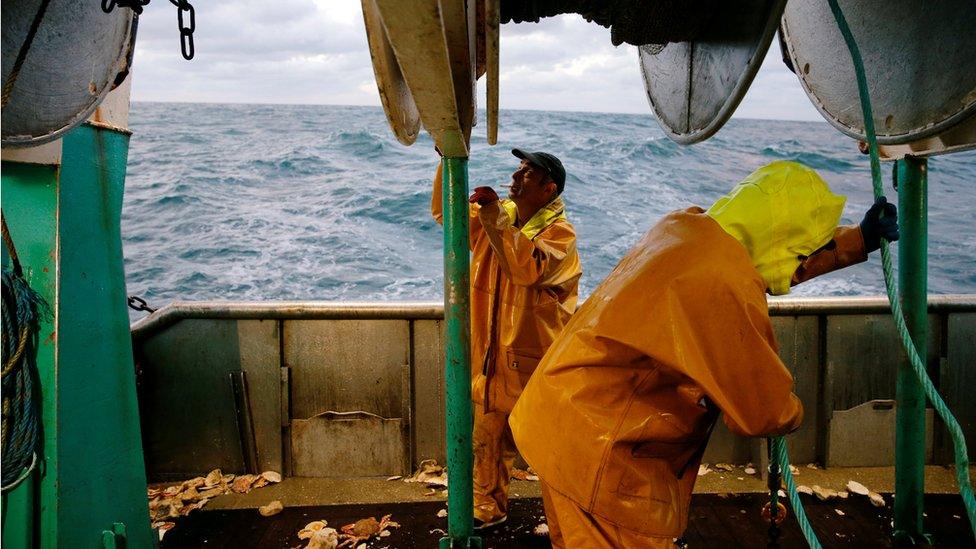
Fishing has been another contentious issue in the Brexit talks - and the French president has indicated he will not drop it
Now this should shock no-one. Fish, Gibraltar, the EU trying to tie the UK to its competition rules, even the Irish border backstop are all issues that were dealt with just enough to complete the Brexit deal texts but, in reality, the can was kicked down the road to the future trade negotiations.
To sum up: these 19 months of endless wrangling over the Brexit divorce deal... they were a just a taster of what is yet to come.
- Published25 November 2018
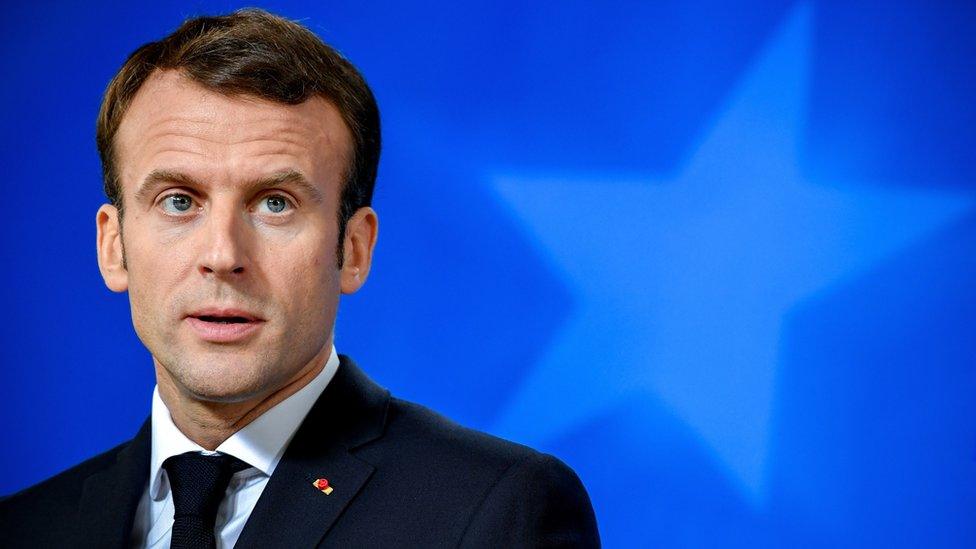
- Published23 November 2018
- Published22 November 2018
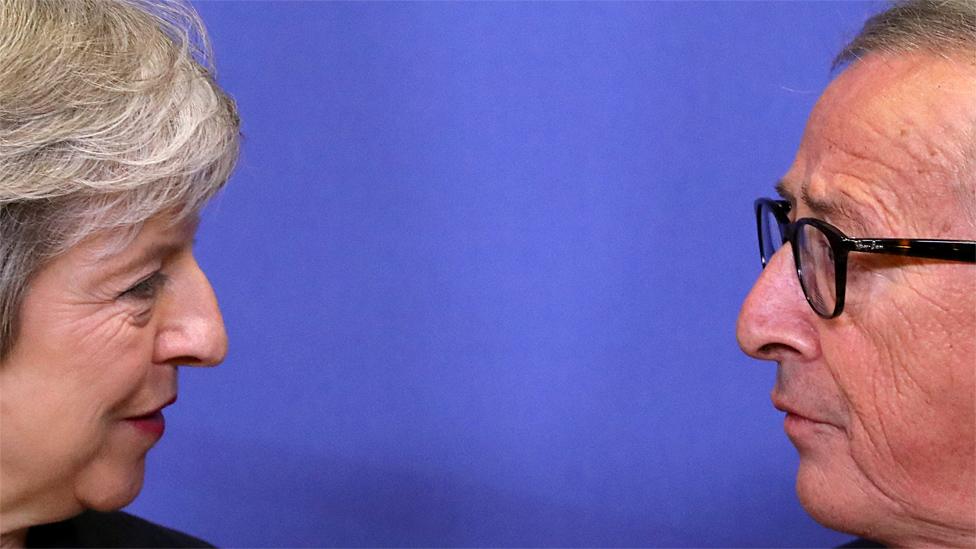
- Published20 November 2018
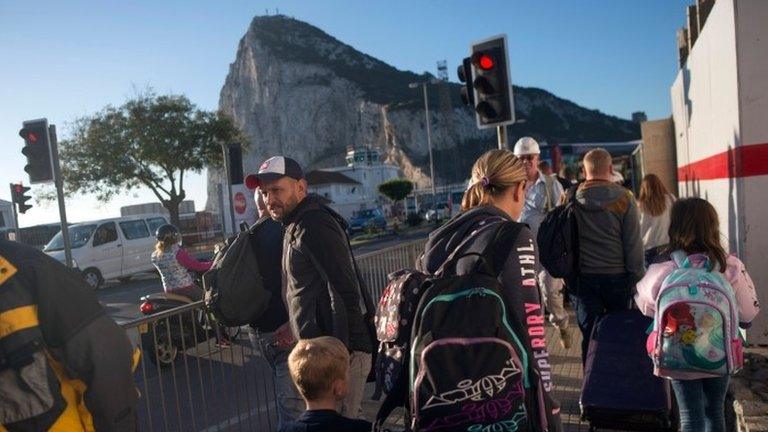
- Published22 February 2018
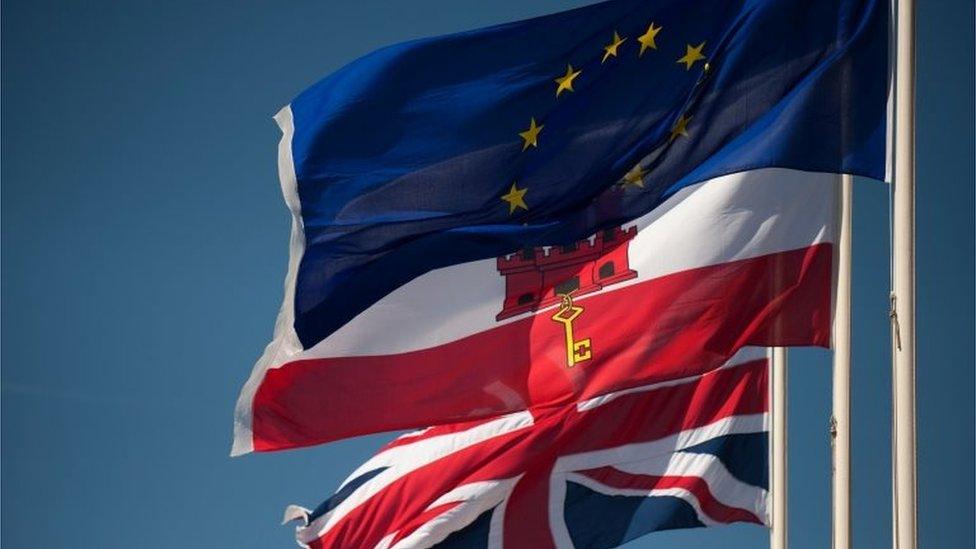
- Published22 November 2018
